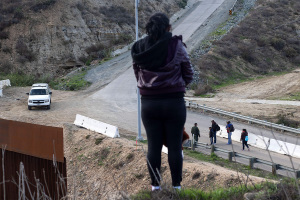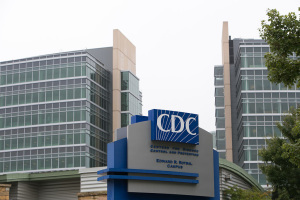Council of Bishops Approves Statement Against Same-Sex Unions
“It is not unjust to deny legal status to same-sex unions because marriage and same-sex unions are essentially different realities."
WASHINGTON -- On Nov. 12, the delegates to the U.S. Conference of Catholic Bishops (USCCB) overwhelmingly approved a statement rejecting same-sex unions as socially, spiritually or legally binding. Entitled, “Between Man and Woman: Questions and Answers About Marriage and Same Sex Unions,” the hurriedly drafted statement made clear the Catholic stance on the issue of homosexuality and its role in church and society.
The statement was brought to light during the first day of the Washington conference, Nov. 10, by Bishop J. Kevin Boland of Savannah, Ga. Boland, who serves as the chairman of the USCCB Committee on Marriage and Family, said the 2,000-word statement was intended "first and foremost, to help our Catholic people participate in the current social debate about marriage."
"This statement has one main purpose, namely, to express the Catholic Church's core belief and teaching about marriage and then apply it to the current debate about extending marriage to include the legal recognition of same-sex unions."
Boland added that the proposed statement was "educational and catechetical" and was "not meant to be a detailed theological treatise, public policy statement or legal argument."
"It strives to show that marriage is directly related to the common good of society," he said. "This point is essential. Marriage, by being true to its God-given nature and purposes, makes a unique and irreplaceable contribution to the common good.
"It is a public institution, not simply a lifestyle choice made by two people who can give it whatever meaning they wish," he added.
The statement itself, passed by a vote of 234-3, declared that "Marriage, whose nature and purposes are established by God, can only be the union of a man and a woman and must remain such in law.”
"A same-sex union contradicts the nature of marriage. It is not based on the natural complementarity of male and female; it cannot cooperate with God to create new life; and the natural purpose of sexual union cannot be achieved by a same-sex union,” it read.
Bishop Wilton D. Gregory of Belleville, Ill., USCCB president, told the bishops that "rapid developments, both social and legal, which attempt to equate such (same-sex) unions with marriage between a man and a woman" led the USCCB Administrative Committee in September to seek development of the statement in time for the November meeting; normally, such statements take six months to an year to develop.
The statement also recognized "the importance of restating in a clear, understandable and unequivocal way the meaning of marriage, its purposes and its value to individuals, families and societies," Bishop Gregory said.
The recent statement followed the release of a public policy statement in September by the 47-bishop Administrative Committee – the highest body in the USCCB next to the general assembly of the bishops. The September declaration called for a constitutional amendment to protect the unique social and legal status of marriage as a heterosexual union.
"Across times, cultures and very different religious beliefs, marriage is the foundation of the family. The family, in turn, is the basic unit of society. Thus, marriage is a personal relationship with public significance,” the statement declared. "The state rightly recognizes this relationship as a public institution in its laws because the relationship makes a unique and essential contribution to the common good."
Currently, such a bill is underway across the states. To date, 37 states have passed the “defense of marriage act,” which defines marriage as a union between a man and a woman only. Should 38 states accept the act, the bill could be translated into a constitutional amendment.
The statement adopted by the Bishops calls for such an amendment. "The state has an obligation to promote the family, which is rooted in marriage. Therefore, it can justly give married couples rights and benefits it does not extend to others. ... It would be wrong to redefine marriage for the sake of providing benefits to those who cannot rightfully enter into marriage.”
"It is not unjust to deny legal status to same-sex unions because marriage and same-sex unions are essentially different realities," the statement said.
"To uphold God's intent for marriage, in which sexual relations have their proper and exclusive place, is not to offend the dignity of homosexual persons," it added "Christians must give witness to the whole moral truth and oppose as immoral both homosexual acts and unjust discrimination against homosexual persons."
The bishops plan to publish the short statement in brochure form for wide distribution and circulation in parishes across the U.S.




























